Why did the Russian delegation visit North Korea before the historic meeting with the US?
A Russian delegation arrived in Pyongyang this week to discuss plans to build a bridge linking the two countries' border as the leaders of North Korea, the United States and South Korea are expected to hold a summit in the next two months.
Bridge construction plan
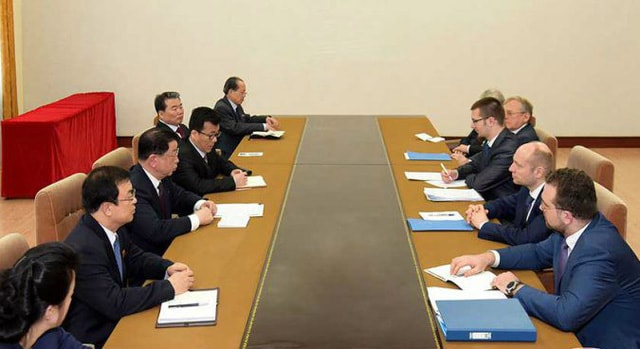 |
| A Russian delegation led by Minister for the Development of the Far East Alexander Galushka (second from right) met with North Korean officials on March 21. Photo: KCNA |
North Korea shares borders with three countries: South Korea, China, and Russia, with the Russian border being only 17 km long and running along the Tumen River. There is currently only one crossing between Russia and North Korea, called the “Friendship Bridge.” Opened in 1959, the bridge connects the railway systems of the two neighboring countries.
Amid signs of easing tensions on the Korean Peninsula and high-level meetings between the leaders of the United States, South Korea and North Korea scheduled for the next two months, a Russian delegation arrived in North Korea this week to discuss plans to open a new bridge between the two countries. Although the plan appears to be in its early stages, it is a sign that both Russia and North Korea are looking to increase trade amid growing international sanctions to pressure Pyongyang.
According toWashington PostRussia and North Korea have long considered opening a route that would allow vehicles from both countries to travel back and forth without the time-consuming detour through China. The Russian Far East Development Ministry announced on March 21 that Moscow and Pyongyang have set up a working group to discuss the establishment of a new bridge.
“There are currently 23 automatic checkpoints between North Korea and China, but none with Russia. Currently, when importing goods from the Russian Far East, North Korea does not cross the border with Russia but through China. This significantly lengthens the route,” Ro Tu Chol, a North Korean minister, was quoted as saying by the Russian Far East Development Ministry during a meeting between the two countries.
According to the announcement of the Ministry for the Development of the Russian Far East, Minister Ro proposed to expand the existing bridge between Russia and North Korea. Meanwhile, Minister for the Development of the Russian Far East Alexander Galushka, who represented Russia at the meeting with North Korea, proposed to build a pontoon bridge.
Economic relations
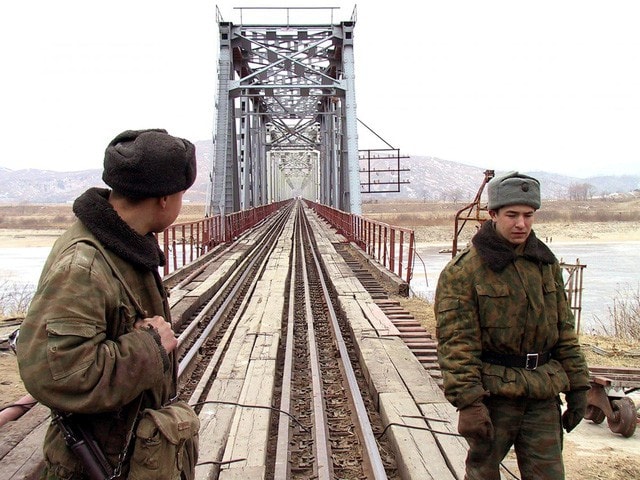 |
| Russian soldiers stand guard on the bridge connecting the Russia-North Korea border. Photo: Reuters |
Anthony Rinna, an analyst on Russian foreign policy in East Asia, said the new border bridge between North Korea and Russia could be used to respond to any “unexpected” problems, such as logistical and technical failures, that would render the current railway between the two countries inoperable.
According to Benjamin Katzeff Silberstein, a scholar at the Foreign Policy Research Institute, the bridge between Russia and North Korea has more symbolic value than economic value. Silberstein said that Russia-North Korea trade relations are insignificant, largely due to multilateral sanctions imposed by the United Nations. However, in the long term, trade between the two countries could grow again.
Russia and North Korea have historically maintained close trade relations. During the Cold War, the Soviet Union was North Korea's most important economic ally, accounting for half of Pyongyang's foreign trade in the 1970s and 1980s. However, after the collapse of the Soviet Union, relations between the two countries began to drift apart, especially as Russia's new president, Boris Yeltsin, sought closer ties with South Korea.
Bilateral relations between Russia and North Korea began to improve again when President Vladimir Putin came to power. Putin visited Pyongyang in 2000 and received enthusiastic support from North Korea. However, economic ties between the two countries have not grown much. In 2013, Russia accounted for only 1% of North Korea's foreign trade, much lower than China.
Sanctions barrier
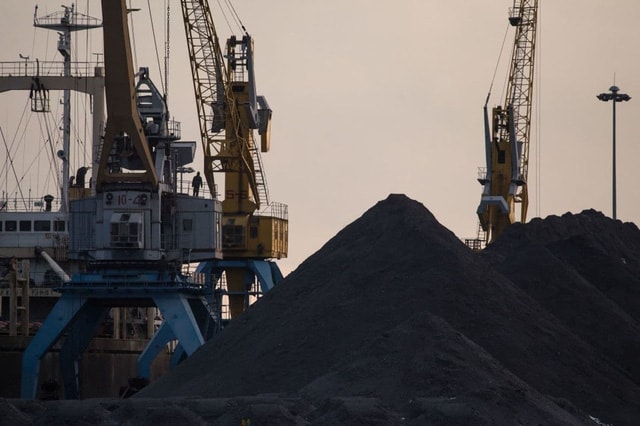 |
| Coal piled up at a port in Rason, North Korea. Photo: AFP |
Although both Russia and North Korea are keen to improve their economic ties, Pyongyang’s status as an international flashpoint due to its controversial weapons program has made relations between the two countries less than expected. Russia has supported several UN Security Council resolutions to sanction North Korea, including restrictions on North Korean laborers working in Russia.
Artyom Lukin, professor of international politics at the Far Eastern Federal University in Vladivostok, Russia, said that trade between Russia's Far East and North Korea has clearly declined significantly in the past two years. Previously, the railway bridge connecting the two countries played an important role in transporting coal from Siberia to the port of Rajin in the North Korean city of Rason.
According to Professor Lukin, at present, it is difficult for Russian investors to invest in building a bridge with North Korea.
“North Korea will expect Russia to provide the money. However, no Russian investor, private or state, will commit to the project unless the political risks associated with North Korea are significantly reduced,” Mr. Lukin said.
If the political risks in relations with North Korea decrease, Russia will certainly benefit from investing in North Korea. With sanctions on Pyongyang lifted, the North Korean port of Rajin will give Russia a significant foothold in the region. Moscow could also connect to South Korea via a rail network, allowing a cargo route into and out of Europe via Russia, or a pipeline across the Korean Peninsula that would allow Moscow to supply gas to both North and South Korea.
If the political climate is favorable, Russia also has many opportunities for economic development in North Korea. Last year, a Russian company provided a new Internet connection to North Korea via a fiber optic cable system running along a bridge connecting the two countries. And now Russia continues to plan to build a new bridge.
“Sooner or later, North Korea will come out of its isolation. At that time, the bridge (connecting Russia and North Korea) will be in high demand,” Mr. Lukin said./.

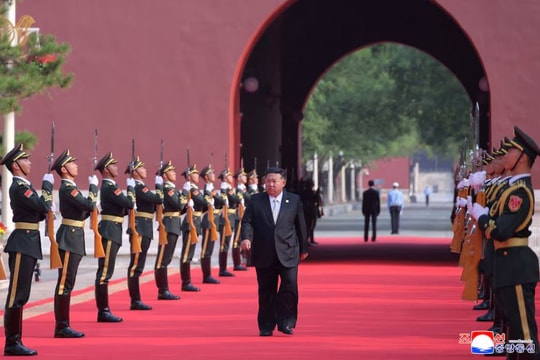
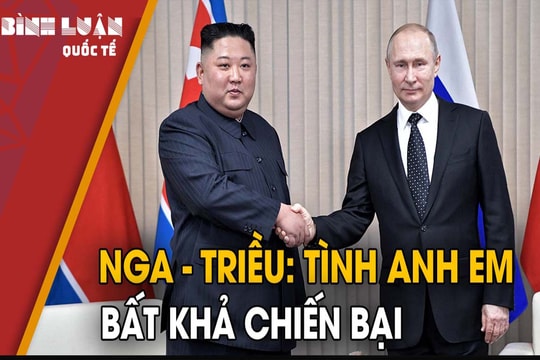
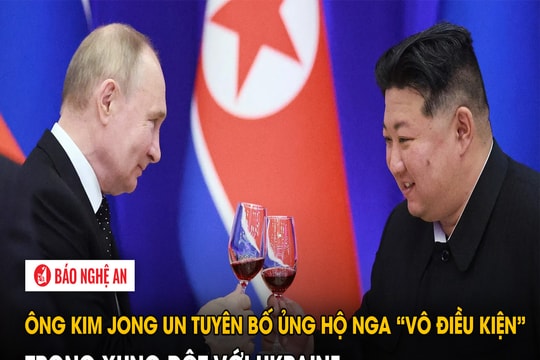
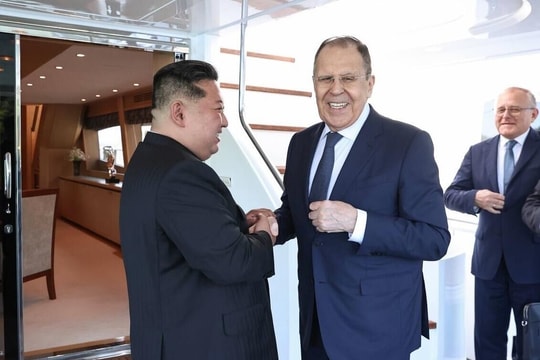
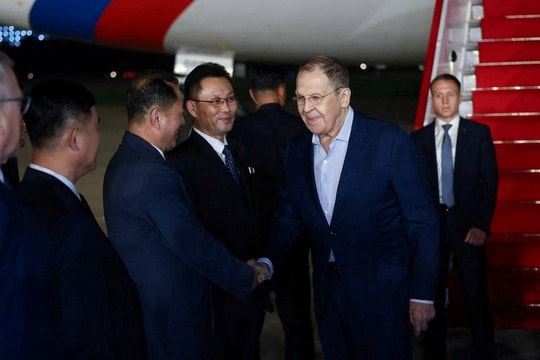
.jpg)

